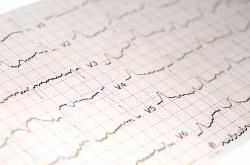Why Am I Always Tired – Pinpoint the True Cause of Your Fatigue
One of the most difficult issues surrounding fatigue is the “why” of it all. If you’re suffering from constant tiredness and wondering what might be causing it, this article is for you.

This information will help you to either dismiss each possible cause or note it as a potential reason for your tiredness. Once you better understand what is causing your fatigue, you will be able to take steps towards regaining your health and energy.
Nutrient Deficiency
Your body needs fuel to run efficiently. This fuel is manufactured from a combination of oxygen and the nutrients in the food that we consume. Since the body needs vitamins and minerals to function properly and metabolize the food you eat, even a relatively minor deficiency in any given nutrient can lead to serious problems.
Iron deficiency and iron anemia
When iron levels are too low, your body will struggle to deliver nutrients to all of your cells. Iron deficiency prevents sufficient oxygen from being transported through the blood, and energy production drops. Besides fatigue, symptoms of iron deficiency anemia include:
- Pale skin
- Shortness of breath
- Tingling in legs and arms
- Swollen, sore or glossy tongue
- Muscle soreness
- General weakness
- Strange cravings for non-food items (such as ice, dirt or starch)
To learn more about how iron deficiency causes fatigue and which tests and supplement options are recommended, read our article: Understanding The Importance Of Iron And Iron Deficiency Anemia.
B12 deficiency/anemia
A deficiency in the levels of B12 in your body can cause a host of problems. Without B12, your cells cannot divide properly, and this leads to your red blood cells enlarging beyond their normal size. That provokes your immune system, leading to inflammation and eventual fatigue. If you’re relatively young and eat a balanced diet that includes meat, chances are that you don’t suffer from B12 deficiency. It can become a problem as you age, however. Besides fatigue, symptoms of B12 deficiency include:
- Brain fog and memory impairment
- Tingling in your arms and legs
- Depression
- Shortness of breath
- Unexplained weight loss
- Hallucinations, in more severe cases of deficiency
To learn more about how vitamin B12 deficiency causes fatigue and which tests and supplement options are recommended, read our article: Why Your Fatigue Could Mean You Suffer From Vitamin B12 Deficiency.
Vitamin D deficiency
Since your body can actually synthesize its own vitamin D when you are exposed to the sun, vitamin D deficiency should be a rare condition. Sadly, that is not the case. Many fatigued individuals suffer from a lack of this vitamin. Besides fatigue, symptoms of vitamin D deficiency include:
- Body aches
- Tense muscles
- Physical weakness
- Memory impairment
- Mood swings and irritability
- Greater susceptibility to illness
- Medical conditions like osteoporosis and rickets
To learn more about how vitamin D deficiency causes fatigue and which tests and supplement options are recommended, read our article: Vitamin D Deficiency and Fatigue.
Folic acid deficiency
Folic acid deficiency can be extremely damaging for anyone suffering from fatigue. This vitamin is important for healthy adrenal function, and helps regulate your metabolism as well. The important thing for anyone suffering from fatigue to understand is that proper levels of this vitamin are necessary for keeping those red blood cell counts where they should be. A deficiency causes a drop in that cell production, and that means fewer red blood cells to carry oxygen to your cells. The end result: less energy being created, eventual anemia, and fatigue. Besides fatigue, symptoms of folic acid deficiency include:
- Sore tongue
- Chronic headaches
- Lightheadedness
- Memory problems
- Loss of appetite and weight loss
- Lack of concentration
- Irritability
To learn more about how folic acid deficiency causes fatigue and which tests and supplement options are recommended, read our article: The 5 Most Critical Vitamins and Minerals for Fighting Fatigue.
Magnesium
Magnesium plays a powerful role in metabolic activities, normalizes blood pressure, and balances the calcium in your body to provide greater bone stability. It is also absolutely vital for ensuring that your cells can create the energy your body needs throughout each day. Besides fatigue, symptoms of magnesium deficiency include:
- Breathing difficulties
- Sleeplessness
- Seizures
- Anxiety and depression
- Muscle cramps
- Vertigo
- Difficulty with swallowing
- Nausea
- Stomach Cramps
- Hair Loss
- Cold hands or feet
- High Blood Pressure
To learn more about how magnesium deficiency causes fatigue and which tests and supplement options are recommended, read our article: Understanding The Importance Of Magnesium.
Food and Fatigue
When it comes to maintaining proper energy levels, there is no single greater factor than the foods you eat. Yes, energy is made within your cells, but before that can happen you have to provide those cells with raw materials. It is food that contains those raw materials – in the form of nutrients. That food contains the carbohydrates, proteins, and fats you need for energy conversion within the body. It also contains the vital minerals and vitamins that each body system needs to perform at peak levels.
With that said, there are many dietary issues that can either cause or worsen fatigue. Here are some of the most common dietary complications that could be responsible for your lack of energy.
Blood Sugar Connection, High GI Foods and Fatigue
The Glycemic Index – or GI, for short – is simply an index that tracks the rate at which carbohydrate sugars are absorbed in the body. The higher a food ranks on that index, the quicker the sugar is absorbed. High GI foods metabolize quickly, increasing blood sugar levels.
The problem is that this sharp and rapid increase in blood sugar is short-lived. You might receive a sudden burst of energy, but the body burns through that excess blood sugar so fast that your burst of energy is typically followed by a sudden crash. You see, when blood sugar levels increase quickly, the body releases insulin in an attempt to restore the normal balance. That causes the adrenals to release both cortisol and adrenaline to deal with the insulin.
The end result is that your adrenals and other systems end up working overtime to deal with these high GI foods. And since the adrenal glands’ stress response is designed to be an emergency response, they end up depleted when they are forced to work like this for extended periods of time. That ultimately leads to severe fatigue.
That makes certain dietary habits extremely unhealthy over the long-term. Irregular eating habits – including skipping breakfast, the consumption of sugary foods on a regular basis, and choosing foods that your body burns quickly can all lead to unbalanced blood sugar levels and fatigue.
To learn more about the relationship between High GI foods and fatigue, and recommended strategies for dealing with dietary issues, read our article: Why High Glycemic Index Foods Make You Tired.
Foods That Burden the Body, Promote Inflammation and Lead To Tiredness
There are also many foods that can create what are known as body burdens. These burdens act as stressors that place incredible demands on your adrenals and other bodily systems. They can lead to inflammation, disruptions in hormone levels, and fatigue. They include the following foods types:
- Sugar, especially in the form of processed carbohydrates that can elevate blood sugar and disrupt normal hormone levels.
- Additives and artificial sweeteners such as aspartame, preservatives, flavor enhancements, MSG monosodium glutamate, artificial coloring, pesticides, and other chemicals and potential toxins.
- Hydrogenated - trans fats, of the kind used in many processed and pre-packaged food offerings.
- Omega 6 fatty acids, when consumed to excess.
- Processed meats, due to the sodium nitrate used as preservative. Nitrates are not only bad for your energy levels, but can create heart complications as well.
- Heavy metal contamination of the kind found in many types of fish.
- Alcohol, due to its impact on sleep and its ability to trigger a rollercoaster sensation of excitement followed by fatigue.
To learn more about the relationship between body-burdening food and fatigue, and recommended strategies for dealing with food-related body burden issues, read our articles: Foods And Drinks To Avoid If You Are Feeling Tired and Food and Tiredness.
Food Allergies and Sensitivities
There are times when you are certain that you’re doing everything right with your diet, and you still end up fatigued. Even the most well-balanced dietary strategy will accomplish nothing if there are some food choices in that diet that are incompatible with your body. These problem foods can include anything to which you are allergic or overly sensitive. Eating them can provoke disruption in various systems of the body, and even an allergic response.
Food sensitivities and allergies can include, among other things:
- Dairy sensitivity
- Sensitivity to the Mercury in fish
- Gluten intolerance
- Peanut and other nut allergies
- Soy allergies
- Egg White allergies
- Corn allergies
- Chocolate intolerance
When you have a sensitivity or allergy to any of these or other foods, your body reacts to them as it would any invasive substance. Antibodies are mobilized to fight the perceived invader, and that in turn creates inflammation. That inflammation triggers the release of cortisol as part of the stress response. When these foods are consistently eaten as part of your regular diet, the result is a constant stress reaction that eventually wears down your adrenals and other bodily systems. That leads to fatigue.
To learn more about how problem foods can cause allergic reactions, read our article: Are These Common Problem Foods The Real Source of Your Fatigue?
The important thing to do is to identify the source of any food that might be causing an allergic reaction. There are two ways to accomplish that goal: have lab tests run to isolate any allergens, or conduct trial and error tests at home. The first option is self-explanatory: contact your doctor and let him or her schedule the needed exams. The second can be more complex, but can also be effective - and far less costly. The four methods for self-testing involve monitoring your pulse after meals, keeping a food diary, tracking your food consumption and symptoms, and removal of certain foods from the diet.
For more information about food allergies and sensitivities, as well as how various lab and home tests are conducted, read our articles: Tiredness And Common Food Allergies, and Tests And Diets For Food Allergies.
Sleep
As you might expect, there is a powerful relationship between sleep and fatigue. Your body is a machine, and like any machine it requires charging to operate at peak efficiency. While food provides fuel to keep you going throughout the day, it is sleep that recharges you every night. To ensure that you are getting enough sleep, and the right kind of rest, it is important to understand the many factors that can negatively impact your sleep cycle and cause fatigue.
Sleep Deprivation
The average person requires between 7 and 9 hours of restful sleep each night. When you fail to get that sleep, your body eventually suffers the consequences of fatigue. This sleep deprivation disrupts your hormonal cycles and can cause imbalances throughout your body. Worse, it can evoke the stress response, placing increased demands on the adrenals and other systems. All of that can lead to ever-increasing levels of fatigue, and a pattern of disrupted sleep that can make that fatigue chronic over time.
To learn more about how sleep deprivation can impact fatigue, read our article: Sleep And Tiredness.
Poor Sleep
However, even if you manage to get your 7 to 8 hours of sleep, you can still suffer from fatigue – if you suffer from poor sleep. Poor sleep is exactly what it sounds like: sleep that fails to refresh you properly or that leaves you feeling as tired when you wake up as you were when you went to bed. This is most commonly the result of some form of interrupted sleep.
Sleep is a lot more involved than most people understand. If it were simply a matter of shutting your eyes and waking up completely refreshed, then fatigue wouldn’t really be an issue for any of us. Sadly, it is not that simple. To get proper rest, your body must go through each stage of the sleep cycle without being interrupted. There are five of these stages, and each is essential to producing the type of quality rest that you need.
The first two stages involve light sleep, and generally require about half of your total sleep time. The next two stages take up about two hours of time, and involve deep sleep. The last portion is the REM, or Rapid Eye Movement stage. It generally occurs for the last two hours of sleep. Each of these stages plays its own role in refreshing and rebuilding both body and mind. Consequently, any interruption in any of these stages can leave you feeling fatigued even when you think you’ve received a full night’s sleep!
To learn more about how poor sleep can result in fatigue, read our article: The Stages and Cycles of Sleep.
Things that cause poor sleep
If you’re suffering from poor sleep, it’s important to identify the reason or reasons so that you can make changes and enjoy restful sleep once again. There are many different factors that can result in interrupted sleep, including the following:
- Hormonal problems. Any disruption in your normal hormone balance can result in disrupted sleep patterns. For example, adrenal fatigue patients often have disruptions in their levels of cortisol and melatonin, which can cause an imbalance in the normal sleep/wake cycle. Women going through perimenopause and menopause endure dramatic shifts in their sex hormones. All of these alterations in hormone levels can interrupt sleep and leave you feeling fatigued.
- Disruptive bedroom environment. There are many things in the bedroom that can prevent restful sleep. Lights from alarm clocks, radios, and televisions can all inhibit melatonin – the chemical that is essential for the sleep cycle. Noise, poor oxygen supplies, and extreme temperatures can be equally disruptive. Tip: try to keep that bedroom temperature in the low sixties at night.
- Shift work. Sleep disruption often occurs with people who work late night shifts and find themselves sleeping during the day. Since our bodies are programmed to release melatonin during periods of darkness, it can be difficult to adjust to daytime sleeping. To counter that, try to keep the room as dark as possible while sleeping.
- Taking care of small children. The stress from dealing with small children on a regular basis can be intense, but the real danger comes from the erratic sleep patterns many infants exhibit. New mothers and fathers often find themselves extremely tired due to the late night feedings and other baby needs that must be met.
- Frequent urination. How many times have you awakened in the middle of the night because you had to urinate? This is among the most common sleep disruptors out there. Unless you urgently have to use the bathroom, try to go back to sleep. More importantly, try to limit your fluid intake in the hours before bedtime. That can help to put less pressure on your bladder and lessen the chances of it waking you in the middle of the night.
- Irregular sleeping schedule. Many people fall into the habit of going to bed at different times on the weekends. That can lead to disrupted sleep patterns as well. For consistent results from sleep, try to go to bed at the same time every night, and rise at the same time the next day.
- Anxiety or depression. Anxiousness and depression can both prevent normal sleep patterns. They can often prevent you from getting to sleep, due to your mind focusing on your worries and fears rather than relaxing. And when you do get to sleep, your brain can spend much of its time still trying to resolve those issues rather than getting the rest it needs.
- Backaches and other pains. Pain can prevent you from relaxing so that you can get to sleep. Even minor aches and pains can cause the type of discomfort that can keep you awake for hours on end.
- An uncomfortable mattress. Beds can be either too hard or too soft. Either one can prevent you from sleeping properly. If your mattress is anywhere close to ten years old, it’s probably time for a new one.
- Sleep disorders, as detailed in the following section.
To learn more about the factors that can cause poor sleep, read our article: Waking Up During The Night… Is There Something You Can Do?.
Sleep disorders
There are many different sleep disorders that can prevent you from getting the rest you need. When you fail to recognize or address them, you leave yourself susceptible to the negative effects of sleep deprivation. That’s why it is critically important to learn all that you can about these disorders and seek treatment for any that you might be enduring.
Sleep apnea
Sleep apnea is a condition that results in your throat collapsing at different times during your sleep period. This limits the amount of oxygen that is able to make it to your lungs, and triggers a response in the brain that causes you to wake up just enough to enable your throat to relax. This disrupts your restful sleep, and prevents the body from going through all of the sleep cycles.
To learn more about sleep apnea and its effects on sleep, read our article: Sleep Apnea.
Restless Leg Syndrome – RLS
Restless Leg Syndrome is a disorder that causes you to move your legs while sleeping. These can be repetitive movements, and are often accompanied by whole-body movements as well. As you might imagine, this can leave you feeling less than refreshed even after a full night’s sleep. It can be a sign that iron levels are low, or there may be a deficiency in your folic acid or B12 levels. It can also occur after you’ve suffered an injury to your nerves. If you wake up with your bedding in disarray, there is a good chance that RLS may be an issue for you.
To learn more about Restless Leg Syndrome and its effects on sleep, read our article: Restless Leg Syndrome (RLS).
Narcolepsy
Narcolepsy is another disorder that can profoundly disrupt your sleep cycle. For those who suffer its effects, it can be devastating. Though it is relatively rare and impacts about one-tenth of one percent of the population, it remains a serious concern for those patients. It is characterized by severe drowsiness during the waking hours. It can also be accompanied by muscle weakness known as catalepsy, which can cause a complete loss of muscle control. Sleep paralysis can also be a problem.
This disorder is often seen in patients suffering from fibromyalgia and chronic fatigue syndrome. Left untreated, it can pose serious problems for anyone who is trying to enjoy a normal quality of life. Fortunately, there are sleep tests to diagnose it and treatments that can address it.
To learn more about narcolepsy and its effects on sleep, read our article: Narcolepsy.
Insomnia
Insomnia is a disorder that affects a large percentage of the population at one time or another in their lives. If you find yourself going to bed and just lying there, completely unable to sleep, then insomnia may be an issue for you. This can be the result of a variety of different problems, ranging from too much caffeine to hormone imbalances. The main reason, however, commonly has to do with stress.
Because stress induces the release of various adrenal hormones – including adrenalin, your body may simply be too supercharged to allow you to sleep. This is a common byproduct of the adrenal fight or flight response that is the body’s only natural way to deal with any type of stress. Unfortunately, the last thing you need when you’re seeking rest is to have your body ready to battle wild animals or run for safety. You need to unwind and relax. There are some ways to do that, and they primarily involve steps that you can take to manage stress and relax. They include:
- Using your bed only for sleep and sex. Do not watch television, use your computer, or play on your phone while you are in the bed.
- Start getting ready for sleep at least an hour before you head to bed. That relaxation time can help to relieve the stress.
- Meditate, record your thoughts and emotions in a journal, or just pray.
- Avoid caffeine after late morning. Eat a smaller supper and have just a light snack before bed.
- Always go to sleep at the same time every night, and awaken at the same time the following morning. That consistency will help you to sleep better.
To learn more about how insomnia can impact your sleep patterns and create fatigue, read our article: Having Troubles With Falling Asleep.
Upper Airways Respiratory Syndrome - UARS
Upper Airway Respiratory Syndrome is a disorder characterized by nasal congestion and an inability to efficiently obtain needed oxygen while sleeping. Sometimes this can result in less oxygen being delivered to the lungs, but the more common issue is simply that it takes more effort for the body to breathe. That results in more exertion during the time when you’re supposed to be resting, and can result in you waking up feeling as though you got little sleep at all.
If your nasal passages are congested and you find that it is difficult to breathe through your nose when you are first going to sleep, then chances are good that this difficulty continues during your sleeping time.
There are tests that can confirm the presence of this disorder, and various treatments that can help you to avoid this congestion. They include things like nasal strips, and sinusitis spray. In the more severe cases, or where other treatments fail to produce the desired results, a CPAP machine can be the best option. That machine delivers the oxygen you need through a mask while you sleep.
To learn more about how UARS can impact your sleep patterns and create fatigue, read our article: Upper Airway Respiratory Syndrome (UARS).
Stress (chronic or extreme)
We’ve all been told that “stress is a killer.” Well, it might not kill you, but it can definitely make you fatigued. Our body’s response to outside stressors can trigger a variety of hormonal changes that affect the adrenal glands, the brain, and the entire body. The fact is that our bodies only have one way to respond to stress, and that response is designed for short-term emergency situations. When we find ourselves in a position to be continually stressed, recurrent stress responses leave the body in an unbalanced state that invariably leads to fatigue.
Types of Stress: Both the Known and the Little-Noticed Varieties
Stressors come in many different varieties. They range from the physical to the mental and emotional. They all, however, have one thing in common: the body treats them in the same way, regardless of the level of threat they might actually pose to your bodily integrity.
For instance, you may be suffering from a broken leg, injured back, or other physical ailment. The body’s response to that occurs on a subconscious level, and is something that you can exercise little control over. At the first sign of injury, the brain instructs the adrenals to release hormones that include both cortisol and adrenaline. These hormones are designed to deal with dangerous threats – of the kind that you would face were a bear suddenly standing right in front of you. Those hormones are there to initiate what is commonly referred to as the “fight or flight” instinct.
Now take another stressor: you lose your job, or your spouse tells you that your marriage is over. Those stressors are of the mental and emotional varieties – but your body reacts to them in the exact same way that it reacts to physical danger. The same hormones get released, and the same “flight or fight” instincts are triggered.
Regardless of the type of threat your body perceives, that stress response is the same. Unfortunately, your modern life is full of stressors that our ancient ancestors never had to contend with. As a result, far too many people suffer from the effects of repeated and recurring stress reactions that leave them suffering from depleted adrenals, run-down bodies, and extreme fatigue.
To understand just how dangerous this can be, consider the many different types of stressors that you may be facing on a regular basis:
- Problems at work
- Domestic relationship issues
- Financial woes
- Poor dietary habits
- Injuries and illnesses
- Lack of exercise, or exercising too much
- Poor sleep habits
- Reliance on sugars and caffeine to keep you going throughout the day
- Depression
- Feelings of isolation
- An inability to say “no” to new demands on your time
Any one or a combination of these things can provoke the type of stress response that is continual, leaving your body with no opportunity to recover. That continued flood of adrenaline and cortisol can eventually deplete your adrenal glands, flood your brain with cortisol, and leave you susceptible to the type of fatigue that then becomes cyclical in nature. Since fatigue is a stressor in its own right, it can place the same demands on already-depleted glands and make matters even worse.
To learn more about how stress can impact your life and create fatigue, read our articles: Stress And Tiredness and Dealing With Stress And Tiredness. To learn more about how cortisol disruption can lead to greater fatigue, read our article: Cortisol, Your Adrenals, and the War on Stress.
Lifestyle
Your lifestyle choices can also be major contributing factors in your level of exhaustion. There are certain professions and life situations that increase the risk of suffering from lifestyle-related stress and fatigue. Law enforcement, physicians, teachers, and single parents are all at high risk of experiencing this increased stress. There are also certain habits and behaviors that can contribute to your stress levels or otherwise place body burdens on you that gradually wear you down and lead to fatigue. We’ll examine some of them here:
Stimulant Abuse
Your body needs nutrients to create energy for its daily activities. Many people who suffer from poor sleep or dietary choices, however, find themselves relying on artificial sources for that energy. The problem is that those stimulants are always short-term solutions, and they always have lingering negative effects that outweigh any short term benefits – including the disruption of your sleep cycle. Every form of stimulant suffers from this unfortunate drawback, including:
- Caffeine: it provides a temporary burst of energy, but over time your bodily systems become reliant on it and that can disrupt normal energy creation and utilization.
- Nicotine: you may think that it calms you and helps you to be more alert, but its effects are also temporary. Worse, it carries with it negative effects that place additional stress on the body.
- Alcohol: If you think that alcohol is a depressant, you’re right. However, it is also a mood enhancing stimulant in the early stages of consumption. The depressant effect occurs later. That rollercoaster effect on your energy levels places undue stress on the body as well.
- Drugs: This includes both illegal drugs, over the counter medications, and prescription pills. All of them alter the body’s chemical balance, or otherwise impact your bodily integrity in ways that create body burdens and increase stress.
- Sugar: Sugary foods and drinks can cause spikes in blood sugar, which trigger the release of insulin. That, in turn, causes the release of cortisol. Eventually, too much sugar consumption can deplete the adrenals, induce weight gain, and cause greater fatigue.
- Herbal stimulants: Yes, they’re all-natural, but that doesn’t mean that they can’t have negative side effects. Many of these energy boosting herbal products have the same effect as adrenaline – and suffer the same crash in energy when the effects wear off.
To learn more about how stimulants might be causing your fatigue, read our article: Stimulants And Tiredness.
Exercise
Exercise is extremely beneficial for you, but like all things it must be done correctly. Too little exercise can leave you feeling lethargic, and lead to the type of health complications that can sap your energy. Too much can leave you exhausted, injured, or worse. Even the initiation of a new exercise regimen can cause added stress to your system. Done properly, however, exercise can tone your body, decrease the stress on your adrenals, improve heart health, and help to better regulate sleep.
- Lack of exercise provides you with no physical outlet for releasing stress. It also has a deteriorating effect on overall health and can leave you susceptible to weight gain and a variety of illnesses and diseases.
- Over-exercising can exhaust your systems and leave you feeling worse than when you were sedentary. Note that this goes beyond simply working out or engaging in physical activities for lengthier periods of time than you should. It also includes engaging in complex movements without taking the time to prepare your body for them.
- Starting a new exercise regime is always difficult and can be stressful when you jump into any routine you’re not prepared to handle. Experts recommend that sedentary or fatigued individuals begin with low impact exercises and movements designed to build up endurance, muscle strength, and flexibility.
To learn more about how exercise might be causing your fatigue and how it can be done properly to help you recover, read our article: Exercise And Tiredness.
Dehydration
Water is essential to good health. You’ve probably heard time and time again that you need to drink at least two liters of water each day, which is eight 8-ounce servings. That recommended amount should be increased when you are in heated environments, engaged in prolonged physical activity, or a little on the heavy side. Water is critical at all points throughout the day, and even more important at night since our bodies rely on it as an energy source during sleep.
When you suffer dehydration of any level, your adrenals, thyroids, and other glands suffer and lose function. Muscle tone can be impacted, reducing flexibility and strength. You can also gain weight, which can cause added body stress and more fatigue. Even your brain is impacted, as that loss of necessary water reduces both cognitive and memory capacity.
Signs of dehydration can include:
- Dizziness when you wake up
- Extreme thirst
- Waking with a headache
- General weakness in the body
To learn more about how dehydration might be causing your fatigue, read our article: Dehydration And Tiredness.
Lack of Fulfillment and Fun in your Life
Stress can also be caused by mental attitude and a failure to make time for fun and relaxation. Most people focus on diet, exercise, and outside stressors when they address lifestyle changes, but that ignores one of the most critical aspects of health: your own attitude, emotional wellbeing, and ability to relax and enjoy life.
When you feel unfulfilled, you’re more likely to lean toward depression and other mood disorders that affect not only your mind but your body. It’s important to spend time addressing your needs, and that requires setting priorities. If you have a hobby and find that you’re always too busy to enjoy it, make time. If there are other activities that you enjoy, engage in them. If you have to say “no” to someone else’s needs to ensure that you make time to take care of your own, do so.
Put simply, you need some fun in your life to feel fulfilled. That usually requires making tough decisions that prioritize your own needs over others, but it’s something that has to be done.
To learn more about how a lack of fun and fulfillment might be causing your fatigue, read our article: Reducing Fatigue By Changing Your Lifestyle.
Medical Causes of Tiredness
Medical conditions can also cause fatigue. In fact, most serious medical issues have fatigue as one of the most prominent symptoms. Here are seven medical conditions that are commonly associated with extreme exhaustion.
Top 7 Conditions Commonly Associated With Tiredness
There are seven main conditions that invariably have fatigue as a major component. They include adrenal fatigue, thyroid issues, blood sugar problems and insulin resistance, post-viral fatigue, mental concerns like depression, allergies, and CFS (Chronic Fatigue Syndrome).
Adrenal fatigue
Adrenal fatigue is exactly what it sounds like: a syndrome in which the adrenals have been exhausted as a result of continual stress or even one major stressful event. Recovery can take months or even years, and requires commitment to a strict recovery regimen.
To learn more about adrenal fatigue, read our article: What is Adrenal Fatigue?
Thyroid issues
Hypothyroidism is a major concern, and occurs when the thyroid function becomes impaired – usually as the result of iodine deficiency. Blood pressure and energy can be at dangerously low levels, and symptoms such as weight gain, joint pain, reduced heart rate, and skin and hair abnormalities can occur as the condition progresses.
To learn more about thyroid issues and their impact on fatigue, read our article: Are Thyroid Disorders Causing Your Fatigue?
Blood sugar problems and insulin resistance
When you have blood sugar issues of the kind that occurs with diabetes and hypoglycemia, your body produces too much insulin in an attempt to regulate those levels. The problem is that this creates insulin resistance that prevents blood sugar from reaching the cells, and deprives them of the fuel they need to manufacture energy. That leads to tiredness.
To learn more about insulin resistance, read our article: Hypoglycemia And Tiredness.
Post-viral fatigue
Post-viral fatigue is a syndrome that occurs in the wake of a variety of different viral infections. This condition persists even after the virus has run its course, and manifests with symptoms that include extreme exhaustion, muscle pain and weakness, and weakened immunity.
To learn more about post-viral fatigue, read our article: As If the Virus Wasn’t Bad Enough… Post-Viral Fatigue!
Mental problems (anxiety, depression)
Your mind can also be a source for fatigue. Things like depression and anxiety place incredible stress on the body, and it reacts the only way it knows how. These body burdens wear you down over time and can cause severe exhaustion.
To learn more about how depression can cause fatigue, read our articles: How Your Depression Could Be Causing Your Fatigue and The Relationship Between Depression And Tiredness.
To learn more about how anxiety can cause fatigue, read our article: Anxiety Could be Contributing to Your Fatigue.
Allergies
Allergic reactions can be a primary cause of fatigue as well. The body’s response to allergies strains the immune system and the adrenals, and ultimately leaves you exhausted. Allergies that can cause fatigue include things like food, airborne allergens, and chemical substances.
To learn more about how food intolerances can cause fatigue, read our article: Tiredness And Common Food Allergies.
To learn more about how airborne allergies can cause fatigue, read our article: Carried On The Wind: Airborne Allergens.
To learn more about how chemical sensitivities can cause fatigue, read our article: Learn Which Toxins May Be Causing Your Tiredness.
CFS
Chronic Fatigue Syndrome, or CFS, is a growing phenomenon that afflicts many millions of people. It is defined as fatigue that has no discernible medical cause, and can only be diagnosed by excluding other possible causes.
To learn more about CFS, read our articles: Chronic Fatigue Syndrome and Chronic Fatigue Syndrome – Do You Have CFS?
Other Medical Conditions That Cause Fatigue
There are, of course, many other medical conditions that cause fatigue. We’ve listed some below, along with links to articles that can provide more information about each of them.
Inflammatory and autoimmune diseases
Diseases that cause inflammation or otherwise attack the immune system can create the types of body burdens that invariably lead to fatigue. Here are some of the more common examples of these diseases and links to articles that discuss them in greater detail:
- MS: MS: The Relationship between Multiple Sclerosis and Fatigue
- Celiac disease: Celiac Disease and Fatigue
- Rheumatoid arthritis: Beyond Pain: Rheumatoid Arthritis and Fatigue
- Psoriatic arthritis: Psoriatic Arthritis and the Problem of Fatigue
- Lupus: Lupus Fatigue and Its Impact on Patients
- Diabetes: How Diabetes Can Lead to Fatigue and Steps to Address It
Cardiovascular disease
Cardiovascular disease can pose a particular risk of fatigue in patients who suffer from heart problems. When the heart and arteries are not operating properly, the blood flow to the cells can get disrupted, denying the body the nutrients it needs for energy creation. These cardiovascular problems can include:
- Congestive heart failure
- Heart valve problems
- Low Blood pressure: Low Blood Pressure and the Fatigue Conundrum
- High Blood Pressure: Under Pressure: The Relationship between High Blood Pressure and Fatigue
Infections
Infections of any kind can quickly overwhelm your system and pose special body burdens on your health. They exhaust the immune system and adrenals, and can leave you severely fatigued. Here are some of the most common infections that can lead to fatigue:
- UTI
- Candida: Candida And Fatigue
- Glandular fever: How Glandular Fever Can Induce Fatigue
- Pneumonia
- Tuberculosis
- Hepatitis
- CMV
- The Flu
- Mononucleosis
- HIV infection
Chronic diseases
There are many different chronic diseases that can also cause or exacerbate fatigue. Diseases involving the lungs, liver, kidneys, and other organs always impact other systems in the body and wreak havoc on energy levels. They include:
- Respiratory ailments such as asthma, emphysema, and COPD
- Liver disease
- Kidney disease
- Endocrine disease
For more information about chronic illnesses and their impact on fatigue, read out article: Chronic Conditions That Cause Fatigue.
Cancer
Cancer-related fatigue is almost in a special category of its own when it comes to exhaustion. The effects of this disease impact virtually every system in your body and leave you feeling completely devoid of any energy. Worse, it isn’t just the cancer itself that acts on your energy levels. The treatments used to address cancer – radiation and chemotherapy – also cause fatigue.
With cancer, your entire body and mind are under assault. Red blood cells are diminished in number, reducing the amount of nutrients that can be delivered to your cells. Appetite is reduced, which limits the fuel that you’re actually providing for your body. The stress is tremendous, which causes the typical adrenal response, leading to weakened adrenal glands. Sleep is disrupted, and depression can set in quickly.
To learn more about cancer and its relationship to fatigue, read our article: The Rigors of Cancer-Related Fatigue.
Other Frequent Causes of Fatigue
Of course, there are many other reasons why you might be fatigued. These reasons can include everything from being pregnant to simply being overweight. Here’s a look at some of the most common:
Chronic Pain
Chronic pain can create ongoing stress that overtaxes every system in the body. People suffering from constant and chronic pain almost always suffer from fatigue as well.
Conditions involving inflammation tax the immune system and weaken the adrenals. Over time, that leads to lowered cortisol levels, disrupted sleep patterns, and exhaustion.
Teeth Problems
Dental issues can also lead to fatigue whenever problems with the teeth go unaddressed or are improperly dealt with by the dentist. Things like dead teeth, infections after a tooth extraction, and root canal complications can all create added stress, inflammation, and fatigue.
Pregnancy
The progesterone increase that women encounter during pregnancy makes the first trimester especially fatiguing. And while fatigue dramatically lessens during the second trimester, it returns with a vengeance in the third.
To learn more about pregnancy and how it can cause fatigue, read our article: Fatigue and the Joy of Pregnancy.
Menopause and Perimenopause
Both menopause and perimenopause can result in sleeplessness, an increase in stress, and hormonal imbalances that cause progesterone to run wild. All of these effects can result in fatigue.
To learn more about menopause and how it can cause fatigue, read our article: Menopause, Life Changes, and the Problem of Fatigue. To learn more about perimenopause and its relationship to fatigue, read our article: Perimenopause and the Agony of Crashing Fatigue.
Obesity Or Being Severely Underweight
Weight extremes can prove especially taxing to the body’s systems. Being underweight or obese can result in a variety of health complications and added stress. This stress can quickly lead to fatigue if it is not properly addressed.
Eating Disorders (Anorexia, Bulimia)
Anorexia, bulimia, and other eating disorders can severely impact your bodily integrity in a variety of ways. Inconsistent eating habits can result in nutritional deficiencies that can pose a risk to your health and leave you with little energy.
Medications
Often times, medications can be the source of much of your fatigue. Many different prescription and non-prescription medications cause tiredness, including things like such as antihistamines, cough medicines and cold remedies, antidepressants, anti-anxiety medications, sedatives, blood pressure medications, and steroids.
To learn more about how medications can cause fatigue, read our article: Medications That Cause Tiredness.
Supplements and Herbal Products
Supplements and herbal products can also be a source for fatigue, particularly when you fail to take note of how they interact with medications that you might be taking. Taking immune-enhancing herbs alongside drugs that suppress your immune system can result in a variety of complications that include fatigue. To avoid these types of problems, consult your physician before taking any new supplements.
To learn more about the right way to use herbal remedies and supplements when dealing with fatigue, read our articles: Herbal Remedies for Adrenal Fatigue and Supplements For Tiredness.
Exposure To Environmental Toxins
There are a whole host of things in our environment that can invade our bodies and disrupt our systems. If you’re having problems identifying the source of your fatigue, it may be that one of these environmental toxins is at fault. They include things such as:
- Household cleaners
- Mold
- Dust mites
- Electromagnetic pollution
- Dental fillings (mercury)
- Irradiated food
- Genetically modified foods
- Nitrates
- Artificial sweeteners
To learn more about how environmental toxins could be causing your fatigue, read our article: Learn Which Toxins May Be Causing Your Tiredness.
What to Do With This Information: Your Next Step!
Of course, none of this information does you any good at all unless you use it. The question is: how can you translate any of this into meaningful action that can improve your quality of life? Here are some first steps that you can take to get you on the path to getting better:
Self Evaluation of Your Symptoms
Start with a self evaluation to determine your symptoms and when they started appearing. This can help you to not only better identify exactly how you are feeling, but may even provide clues about the source of the problem. Have you recently experienced any of the following?
- Noticeable changes in your life
- Traumatic events
- Added pressure at work
- Illness
- Injury
- New medication regimens
- Increased demands from your family
- Difficulties caring for a loved one
- New supplements
- Dental work such as a root canal
- New financial woes
Note any of these changes in your life, and record them. They may provide critical clues for any more concrete diagnosis to determine the root cause of your tiredness.
Keep A Diary
Yes, that’s right. You need to start keeping a journal to record the daily details of your life. Start tracking the food that you eat, the hours that you sleep, and other specific events that occur throughout each day. As you do so, make notes about any emotions that you feel during that time, as well as the amount of stress that you’re enduring.
As you track all of these things over time, note how each impacts your energy level. If you eat a certain meal and feel exhausted shortly afterwards make a note of that fact. If you sleep eight hours and wake up as tired as when you went to bed, note that too. Are you finding yourself exhausted at particular points during the day? Are encounters with certain people or situations leaving you more tired than you should be? Recording this information in a diary can provide critical data that you can use to better understand your symptoms and the reasons for your fatigue.
Go to the Doctor’s for a Medical Exam
This next step is crucial: go to the doctor. Face it: there is only so much that you can do on your own. At some point, ongoing fatigue is a serious enough issue that it justifies a trip to the physician’s office. Your doctor can perform a number of tests and exams that can help to rule out certain things or positively identify the root cause of your exhaustion.
Be prepared. Your visit will include a medical history review, so that he or she fully understands your previous medical problems, as well as medications you might be taking, how you sleep, and your stress levels. You’ll then undergo a physical examination to either identify obvious ailments or rule out common problems. Finally, some sort of laboratory tests will likely be conducted. These can include blood tests, urine testing, x-rays, and similar exams.
To learn more about what you can expect during your medical examination, read our article: Medical Diagnosis for Your Fatigue: What Patients Can Expect at the Doctor’s Office.
Make Changes
One thing you’ll have to be prepared to do is to make some changes in your life. In almost every instance where severe fatigue comes into play, there is some combination of lifestyle factors that impact that exhaustion. To correct poor lifestyle choices, you have to choose better options. Here are a few of the most important steps that you can take even before you make it to the doctor’s office:
- Improve your diet. Eating balanced meals three or more times a day can do wonders for your energy levels. Be sure to include as many whole foods as possible, including proteins, carbohydrates, and fats in each meal. And never skip breakfast!
- Create a sleep routine. Go to bed at the same time every night, and sleep for at least seven or eight hours. Make sure that you are winding down at least an hour before bed, and that your bedrooms is cool, dark, and without distraction.
- Take a multivitamin. Vitamin deficiencies are among the most common causes for fatigue. A good multivitamin can at least make sure that your body is getting the critical nutrients it needs to create energy.
- Learn to relax. Chances are that you’re busier than you want to be. Force yourself to unwind and relax. Your body and mind need that stress-free time to detach from your hectic life and recuperate. Take some downtime, even if it’s just a few hours.
- Get some exercise. It might just involve a short walk through the neighborhood, but it will do wonders for your body.
To learn more about how changes in your lifestyle can help to reduce your fatigue, read our article: Reducing Fatigue By Changing Your Lifestyle.








.jpg)


Leave a comment